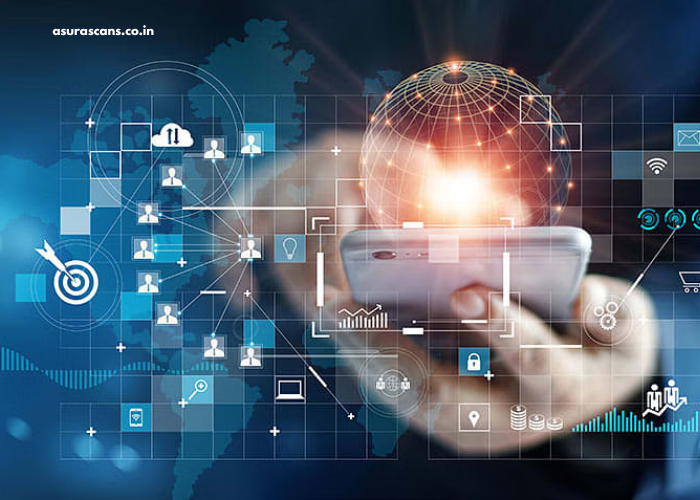In the fast-paced world of technology, breakthroughs emerge continuously, revolutionizing industries, economies, and everyday lives. From artificial intelligence (AI) to quantum computing, renewable energy, and beyond, modern technology has reached unprecedented levels of sophistication. These innovations not only transform how we interact with the world but also promise to address some of the most significant challenges faced by humanity today. This article explores the most prominent breakthroughs in modern technology, highlighting their impact, potential, and future possibilities.
The Rise of Artificial Intelligence and Machine Learning
Artificial intelligence (AI) and machine learning (ML) have emerged as two of the most transformative forces in modern technology. Over the past decade, AI has evolved from theoretical concepts to practical applications that are now embedded in various sectors, including healthcare, finance, transportation, and entertainment.
AI systems are designed to mimic human intelligence, enabling machines to perform tasks that would normally require human cognitive functions. Machine learning, a subset of AI, refers to the ability of algorithms to learn from data and improve over time without explicit programming.
Key Developments in AI:
- Natural Language Processing (NLP): NLP advancements have led to highly sophisticated virtual assistants like Amazon’s Alexa, Google Assistant, and OpenAI’s GPT-4. These systems can understand, process, and generate human language, opening up new possibilities for communication between humans and machines.
- Autonomous Vehicles: AI is powering the development of self-driving cars. With companies like Tesla, Waymo, and others leading the charge, autonomous vehicles promise to revolutionize transportation, reducing human error, improving safety, and enhancing efficiency.
- Healthcare Innovations: AI is also making a significant impact on healthcare. Algorithms can analyze medical images, assist in diagnosing diseases, and even predict patient outcomes. Additionally, AI is used in drug discovery, accelerating the time it takes to bring life-saving medications to market.
The Future of AI:
The future of AI is both exciting and challenging. While it promises to increase efficiency and create new opportunities, it also raises concerns about job displacement, ethical implications, and privacy issues. Nonetheless, continued advancements in AI have the potential to reshape industries and improve lives in ways we have yet to fully comprehend.
The Quantum Computing Revolution
Quantum computing is another groundbreaking development in modern technology. Unlike classical computers, which use bits to process information, quantum computers use quantum bits or qubits, which can exist in multiple states simultaneously. This unique property allows quantum computers to solve complex problems at speeds unimaginable with traditional computing systems.
Key Developments in Quantum Computing:
- Quantum Supremacy: In 2019, Google announced that it had achieved “quantum supremacy,” a milestone that demonstrated a quantum computer could perform a task faster than the most powerful classical computers. While this achievement was specific to a single task, it represents a significant leap in the development of quantum computing.
- Quantum Cryptography: Quantum computing also promises to revolutionize cybersecurity. Quantum cryptography leverages the principles of quantum mechanics to create highly secure communication channels. This technology can prevent eavesdropping by detecting any unauthorized interference, which could have profound implications for online security.
- Scientific Advancements: Quantum computers could also solve problems that are currently too complex for traditional computers. From simulating molecular structures for drug discovery to optimizing logistics and improving climate models, quantum computing could accelerate progress in various scientific fields.
The Future of Quantum Computing:
Despite its potential, quantum computing is still in its early stages. Building stable and scalable quantum computers remains a significant challenge. However, with investments from companies like IBM, Microsoft, and Google, as well as government-backed initiatives, quantum computing is on track to become a game-changer in the coming decades.
The Internet of Things (IoT) and Smart Devices
The Internet of Things (IoT) refers to the network of interconnected devices that communicate with each other through the internet. This technology enables everything from smart homes to wearable health trackers, smart cities, and connected factories. The IoT ecosystem has expanded rapidly, with billions of devices now connected, all sharing data and enhancing automation.
Key Developments in IoT:
- Smart Homes: IoT devices such as smart thermostats, lights, and security cameras are transforming how we live. These devices can be controlled remotely through smartphones, making it easier to manage energy use, enhance security, and improve convenience.
- Wearable Technology: Wearables like the Apple Watch, Fitbit, and other health-tracking devices are using IoT to monitor and collect data about users’ health. From heart rate to sleep patterns, these devices provide insights that can help individuals make informed health decisions.
- Smart Cities: IoT is playing a vital role in the development of smart cities. Sensors embedded in infrastructure can monitor traffic patterns, manage waste, control energy consumption, and improve public safety. The result is a more efficient and sustainable urban environment.
The Future of IoT:
As IoT continues to grow, the possibilities are endless. From fully automated homes to advanced industrial applications, IoT will drive significant changes in how we interact with technology. However, security and privacy concerns are critical issues that need to be addressed to ensure the safe deployment of IoT systems.
Advancements in Renewable Energy Technologies
As the world grapples with climate change and environmental degradation, renewable energy technologies are seeing a surge in innovation. Solar, wind, and other forms of renewable energy are becoming more efficient and cost-effective, making the transition away from fossil fuels increasingly feasible.
Key Developments in Renewable Energy:
- Solar Power: The cost of solar panels has dropped dramatically, making solar energy more accessible to individuals and businesses alike. Advances in solar panel technology, such as perovskite solar cells, promise to further increase efficiency and decrease costs.
- Wind Energy: Wind turbines have become more efficient, with new designs that capture more energy at lower wind speeds. Offshore wind farms, in particular, are being developed to harness the power of ocean winds.
- Energy Storage: One of the key challenges of renewable energy is storage. Breakthroughs in battery technology, such as solid-state batteries and flow batteries, are addressing this issue, allowing for more reliable energy storage and distribution.
The Future of Renewable Energy:
The future of renewable energy looks promising. With continued innovation and government support, renewable energy technologies will play an essential role in combating climate change and transitioning to a sustainable future.
5G and Beyond: The Next Generation of Connectivity
5G technology promises to transform how we connect to the internet and to each other. With its high-speed data transfer, low latency, and ability to connect millions of devices simultaneously, 5G is set to revolutionize everything from smartphones to smart cities.
Key Developments in 5G:
- Ultra-Fast Internet: 5G offers download speeds that are up to 100 times faster than 4G, enabling seamless streaming, real-time gaming, and quick access to cloud-based services. This will enhance the user experience across various applications, from entertainment to work-related tasks.
- Internet of Things (IoT) Expansion: With its ability to connect millions of devices, 5G will accelerate the growth of the IoT. This will lead to smarter cities, more efficient industries, and new innovations in healthcare, transportation, and agriculture.
- Autonomous Vehicles: 5G’s low latency will be crucial for the development of autonomous vehicles, enabling real-time communication between vehicles, infrastructure, and other connected systems. This will enhance safety and efficiency in transportation.
The Future of 5G:
As 5G networks continue to roll out globally, the possibilities for innovation are vast. From augmented reality to smart manufacturing, 5G will act as the backbone for many of the breakthroughs in technology that will shape the future.
Biotechnology and Genetic Engineering
Biotechnology is experiencing a golden age, with breakthroughs that are reshaping medicine, agriculture, and environmental conservation. Advances in genetic engineering, CRISPR technology, and personalized medicine are enabling unprecedented precision in healthcare and beyond.
Key Developments in Biotechnology:
- CRISPR Gene Editing: CRISPR has revolutionized genetic engineering by allowing precise edits to DNA. This technology has the potential to cure genetic disorders, improve crop yields, and even prevent the spread of diseases like malaria.
- Personalized Medicine: Advances in genomics and biotechnology are enabling more personalized approaches to healthcare. By analyzing an individual’s genetic makeup, doctors can provide treatments that are specifically tailored to their needs, improving outcomes and minimizing side effects.
- Biodegradable Plastics: Biotechnology is also making strides in environmental conservation. Researchers are developing biodegradable plastics and sustainable alternatives to reduce the environmental impact of plastic waste.
The Future of Biotechnology:
The future of biotechnology is full of potential. As technology continues to advance, we can expect to see more breakthroughs in healthcare, agriculture, and environmental sustainability.
Conclusion: Embracing the Future of Technology
The breakthroughs in modern technology are reshaping the world in profound ways. From AI and quantum computing to renewable energy and biotechnology, these innovations have the power to transform industries, improve lives, and solve some of the most pressing challenges faced by humanity. As we look to the future, it is clear that technology will continue to drive progress and open new doors to a world of possibilities.
However, with these advancements come challenges, particularly in areas such as ethics, privacy, and security. It is essential that we address these concerns responsibly to ensure that technology benefits society as a whole. As we embrace the future of technology, we must do so with a commitment to innovation, sustainability, and ethical considerations, ensuring a brighter, more connected world for future generations.





